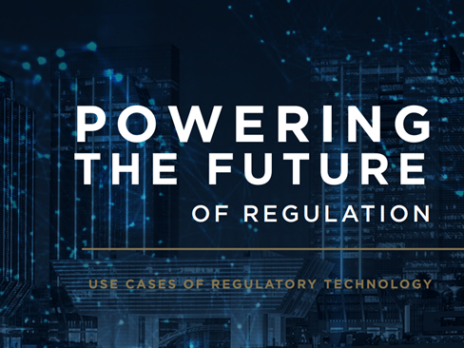

In January 2023, the Financial Services Regulatory Authority (FSRA) of Abu Dhabi Global Market (ADGM) witnessed the closure of the public consultation on the proposed Sustainable Finance Regulatory Framework.
Published in November 2022, the proposal outlined regulations for sustainability-oriented investment funds, managed portfolios and bonds, as well as a framework for environmental disclosures by ADGM companies. As ADGM’s FSRA prepares to share the consultation’s findings, it is worth noting that this is only the latest milestone in a series of significant developments since the international finance centre (IFC) introduced its Sustainable Finance Agenda at the beginning of 2019.
The overall vision was to establish Abu Dhabi and the UAE as a global sustainable finance hub, built around four key pillars: integrating sustainability considerations into the regulatory framework; building cooperation with national and international stakeholders; fostering communication, knowledge and awareness; and creating a sustainable finance ecosystem.
Just four years ago, this ambition seemed merely theoretical. Now it is beginning to take tangible shape, especially with sustainable finance establishing itself as an integral component of strategic decision-making across the corporate landscape. With the urgency of financing the green energy transition, investors are keen to support these strategic projects and allocate capital effectively in areas of genuine impact.
ADGM believes its framework can provide such certainty, channel investment towards sustainability-focused products and services, and position the UAE at the heart of global efforts to finance the green energy transition.
“The overall effort towards sustainability is much bigger than just ADGM,” explains Emmanuel Givanakis, CEO of ADGM FSRA. “We are working in collaboration with the rest of the UAE, driving the evolution of sustainable finance – regulatory infrastructure, governance and vibrant ecosystems. Regulation sits at the heart of that. Further, having a common financial services taxonomy in place for the UAE can help drive the UAE’s 2050 net-zero targets.”
ADGM: Fixing the puzzle
For ADGM, harmonisation, transparency and clarity are paramount, but so is building a sense of confidence and trust. Givanakis acknowledges that there is a clear need for more origination of green finance emerging in the sector. He points to a recent roundtable attended by large financial players enthused as to how the framework could facilitate the origination of sustainability-focused products. Catering to such appetite is a driving factor, but doing so successfully in a manner that grows this space is only achievable through building credibility.
“As a regulator, establishing this confidence and trust with various stakeholders is of strategic priority,” Givanakis explains. “It is essential for driving capital into green projects. In discussions with pension funds, sovereign wealth funds, large family offices and so on, we have not met one who doesn’t want to invest in sustainable products and services. The role played by regulatory guidelines and frameworks is to ensure that these large industry players and other investors are able to identify the set of products and services that are truly sustainable. And this is the piece of the puzzle we are looking to remedy.
“Solving these challenges successfully has the potential to make a seismic impact well beyond the UAE. The ambitions here are international, not just domestic. The discussions with sovereign wealth funds and large family offices point to the sheer amount of capital in the region ready for mobilisation. This large capital pool can do more than just achieve regional targets.”
Pointing to the role London and New York play in securing traditional financing for global infrastructure well beyond their own national borders, Givanakis says: “We need a global equivalent for sustainable finance that will efficiently facilitate the capital moving around the globe,” he says.
Abu Dhabi is being recognised as a ‘capital of capital’, given the presence of such large financial reserves in this part of the world. The holders of that capital are also increasingly interested in the rising opportunities in sustainable investment. Financing can be for a project in the UAE, but it can just as easily be a wind farm in the North Sea or green technologies in South Asia.
ADGM aims to serve as a platform for catalysing the raising of this sustainable capital locally, regionally and globally.
Global firsts
In helping to drive these opportunities and build trust, ADGM has created a new category of sustainable investment vehicle: the Climate Transition Fund (CTFs). It invests in economic activities that are not yet green and require funding to become so. “[CTFs] can be pivotal in driving net zero,” Givanakis believes.
“Our focus on developing standards for green-labelled financial products and services seeks to help investors identify investments with a sustainability objective in a way that effectively mitigates the risk of greenwashing. If you are investing in companies that are currently brown, you need to know there is genuine intent and a clear path to greening themselves. Risk can only be mitigated by having appropriate risk frameworks in place.”
Another area where ADGM is establishing itself as a global leader is in the trade and financing of carbon credits, enabling the launch of the world’s first regulated carbon credit trading exchange and clearing house by becoming the first regulator to develop a framework that supports carbon as a commodity and set to become the first jurisdiction globally to regulate carbon credits and offsets as emission instruments.
Corporates can trade and finance carbon credits like conventional financial assets, driving participation and investment in global carbon reduction and offset programmes through this initiative. The approach mirrors how ADGM became a global leader for innovation and trading in virtual assets.
“ADGM FSRA worked on enhancing its capital markets framework by including environmental instruments, an approach that has allowed carbon offsets to come under its regulatory umbrella,” Givanakis explains. “You don’t just have to be within ADGM to participate. The intention is also to see the development one day of a derivative market in carbon trading, and we have developed the framework to facilitate that too.”
“We have a lot of international entities voicing interest in buying offsets, but they need a marketplace they can trust. Almost all current options are OTC. An open, transparent marketplace is something our regulations facilitate. There is real excitement from multinationals in Europe, North America and Asia about utilising this opportunity and that’s a real signal we’re on the right path.”
ADGM itself achieved carbon neutrality last year through the offsetting of carbon emissions, becoming the world’s first IFC to do so.
ADGM’s spirit of collaboration
With the UAE hosting Cop28 later this year, there is also a heightened sense of urgency across the region. Givanakis stresses the UAE’s longstanding commitment to sustainability but acknowledges that the event is serving to further accelerate action. ADGM chairs the Sustainable Finance Working Group (SFWG), composed of UAE financial regulators, federal ministries and UAE exchanges. Late last year, SFWG published its Second Public Statement, seeking to advance ESG disclosures across the UAE.
“It’s crystallising minds and giving people harder deadlines,” Givanakis says of Cop’s impact. “I have not seen this degree of collaboration, especially among regulators, in my 17 years in the UAE. Governance, taxonomy and disclosures – they are becoming more and more real. Where once we were talking about high-level principles, now we are dealing with specifics and looking to have frameworks in place by the end of the year. We have come a long way.”
The Abu Dhabi Sustainable Finance Declaration, launched by ADGM in 2019 and sponsored by the Ministry of Climate Change and Environment, the Central Bank and the Securities & Commodities Authority, also speaks to this progress. It aims to strengthen the sustainability footprint of the UAE and increase the depth and quality of green finance products in Abu Dhabi. There are now more than 100 signatories from across the globe, all committed to better disclosure and governance.
“It is no longer about stating ambition,” Givanakis declares. “We need to be proposing solutions and taking action. Without the right frameworks in place, it remains a challenge to encourage investors to commit. We have engaged with industry, listened to their concerns, requirements and suggestions, and all that is informing how we, both as a regulatory body and an IFC, can best facilitate the success of sustainable finance in the net-zero transition.”







